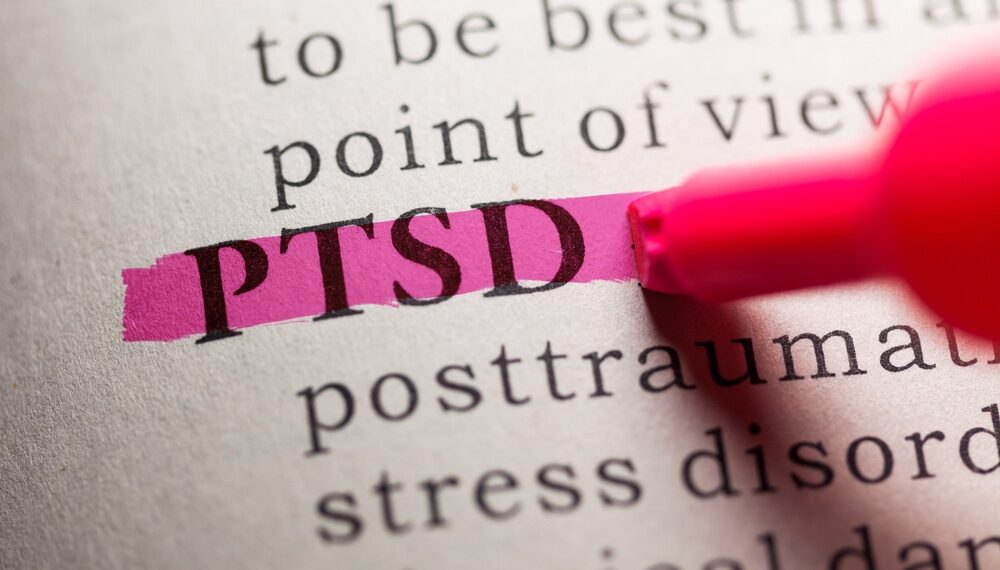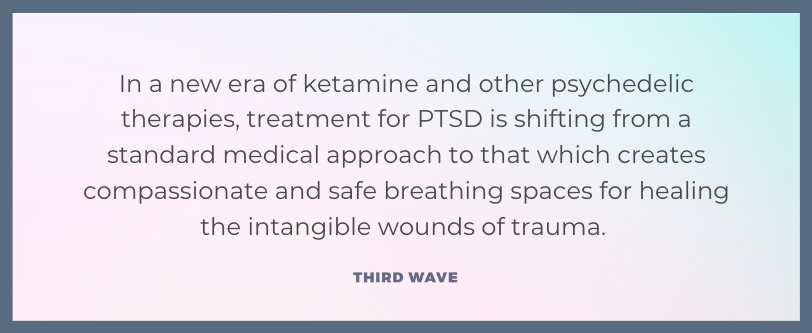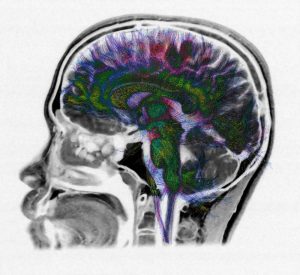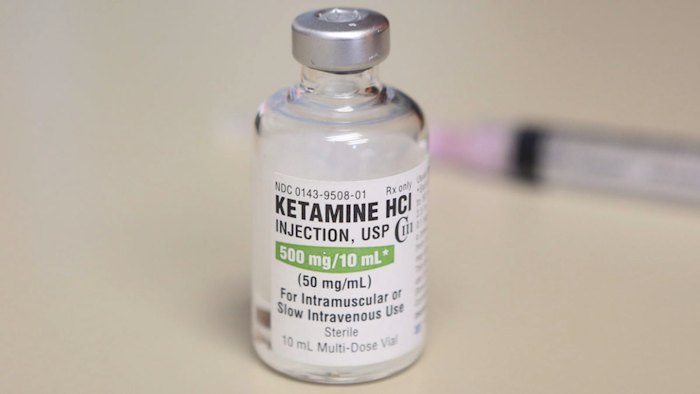
Welcome to the second installment in our three-part series on ketamine therapy, sponsored by Numinus, an official partner of Third Wave.
Disclaimer: Psychedelics are largely illegal substances, and we do not encourage or condone their use where it is against the law. However, we accept that illicit drug use occurs and believe that offering responsible harm reduction information is imperative to keeping people safe. For that reason, this document is designed to enhance the safety of those who decide to use these substances.

Maria Katrina, better known as Kat, is a queer woman of color from Los Angeles, California. She is a trauma-informed Wellness Educator and Psychedelic Harm Reduction Consultant with a Bachelor of Science in Nursing and a Master of Science in Nurse Education. She comes with a strong background in acute health care, hospital administration, and ketamine treatment for mental health disorders. In addition to nursing, she contributes her talents to event health & wellness teams through medical aid, psychedelic harm reduction, and integration services.
After 13+ years of providing care to patients and their loved ones at the bedside, Kat continues to fulfill her desire to provide heartfelt care, healing spaces, and thoughtful education to her community and beyond through psychedelic education & integration support. She also facilitates peer support groups for health care providers, and provides harm reduction services and emotional support to public and private events around the world.
Kat is known for her gracious, enthusiastic attitude and her prowess as a caregiver, her affinity for emotional intelligence, and a lifetime of meaningful experiences to support her clients, colleagues, and community. She finds joy in the art of food, music, and nature, as well as a growing circle of friends! Connect with her on LinkedIn.
Reports of violence, injury, and death appear daily in headlines, so it may come as little surprise that over 70% of adults worldwide experience a traumatic event at some point in their lives.
For this reason, better understanding and finding more effective ways to treat post-traumatic stress disorder (PTSD) are a huge priority.
With ketamine-assisted therapy taking recent medical interest by storm, we’ve outlined the research and potential for this psychedelic medicine to treat PTSD.
Understanding Post-Traumatic Stress Disorder (PTSD)
The National Institute of Mental Health defines a traumatic event as “a shocking, scary, or dangerous experience that can affect someone emotionally and physically.” Such events can include violence, sexual assault, and natural disasters.
Although the nature of traumatic events can vary widely, people with post-traumatic stress disorder (PTSD) present a common set of symptoms in response.
In line with the DSM-5’s diagnostic criteria for PTSD, these symptoms include:
- Re-experiencing or having flashbacks, frightening thoughts, and nightmares about the event.
- Avoidance or avoiding thoughts, feelings, places, and people that are reminders of the event.
- Hypervigilance, being in a state of increased alertness and feeling under threat.
- Altered mood and cognition, including loss of interest and pleasure in activities, negative emotions, and impaired memory.
- Disturbed sleep patterns, like challenges falling asleep, staying asleep, and restless sleep partly due to nightmares.
Depending on other stressful life incidences, such as illnesses and life transitions, the severity of PTSD symptoms can fluctuate over time.
Moreover, external factors, such as childhood trauma, lower socioeconomic status, prior mental disorders, and exposure to interpersonal violence, also impact susceptibility to symptoms.
A Need for Novel Therapies in PTSD
In current psychiatry, most patients with PTSD receive some form of pharmacological therapy in the form of antidepressants, anxiolytic or sedative-hypnotics, and antipsychotics.
Yet for many, these drugs display no long-term benefits, and are often seen as “band-aids” masking the symptoms of PTSD without addressing the underlying causes.
One review study noted how selective serotonin reuptake inhibitors (SSRIs) only effectively treated less than 20% of veterans suffering from chronic PTSD.
In addition, these medications can often cause unwanted side effects, leading many patients to discontinue treatment.
In terms of psychological interventions, the first-line treatment for PTSD is cognitive behavioral therapy (CBT), a form of talk therapy focused on helping patients change how they behave and think.
Although it’s been shown that CBT early after a traumatic event can help decrease and prevent PTSD symptoms, CBT remains ineffective in the long term for many.
Recent estimates suggest six percent of the US population will have PTSD at some point in their life, and this figure is predicted to rise. As such, the current lack of effective therapies for PTSD indicates a substantial unmet medical need.
Ketamine for PTSD
As psychedelic research continues to rapidly grow, it’s becoming increasingly evident how psychedelic substances could be useful tools for treating PTSD.
With research spearheaded by the Multidisciplinary Association for Psychedelic Studies (MAPS), MDMA treatment is now becoming a widely accepted PTSD therapy. You can learn more about MDMA and PTSD by checking out Third Wave’s podcast with MAPS founder, Rick Doblin.
As well as MDMA, a growing body of evidence is demonstrating that psychedelics such as LSD, psilocybin, and ketamine could be similarly effective for PTSD.
Since the first placebo-controlled ketamine-for-depression trial in 2000, numerous studies have found the dissociative anesthetic ketamine has rapid-acting, long-lasting benefits in patients with:
In light of this research, in 2019, the FDA approved Spravato (esketamine) – a nasal spray form of ketamine – for off-label use in treating depression. Since then, the number of clinics across the US and worldwide offering ketamine treatments has expanded sizably.
Among the many leaders in this field are the Canadian-based company Numinus. A proud partner of Third Wave, Numinus offers holistic psychedelic clinics providing therapeutic uses of ketamine. The organization also spearheads research and expands access to psychedelic medicines for healing.
How Might Ketamine Help PTSD Neurologically?
Ketamine’s primary pharmacological effect is through inhibiting n-methyl-d-aspartate (NMDA) receptors, which are a type of protein that normally respond to the neurotransmitter (chemical messenger) glutamate.
Since researchers have found that NMDA receptors can become overactive in PTSD, ketamine could theoretically reverse this biochemical mechanism by dampening the NMDA response.
Glutamate’s primary function is aiding communication between nerve cells, a process found to be impaired in the brains of patients with PTSD. Through its action at NMDA receptors, ketamine may also help reverse PTSD neurobiology, by interacting with and repairing glutamate levels.
Beyond the molecular level, brain imaging has also found ketamine reduces neural activity in the amygdala, which is the brain’s fear-response region, thought to be responsible for PTSD hypervigilance symptoms.
Ketamine as a Psychedelic-Assisted Psychotherapy
Outside of its neurological effects, ketamine’s “trance and transformation” aspects are crucial to a holistic healing process when treating PTSD.
In psychoactive doses, the use of ketamine can give patients a break from their usual state of mind, relieving them from negativity, increasing openness, and creating an opportunity to foster new perspectives.
Combined with psychotherapy, the altered mind state induced by ketamine can allow someone with PTSD to re-explore traumatic events, beginning to unravel and shift the roots behind their negative thoughts and behavioral patterns.
“With appropriate preparation and dosing, ketamine can bring about a unique experience of time, space, and form, one that transcends ordinary consciousness to a state where the mind feels liberated,” wrote Dr. Reid Robison, Chief Officer of Numinus, in an interview for Psychiatric Times.
“In this non-ordinary state of consciousness, the client has the opportunity to think and feel differently. They may more easily revisit past traumas and be better able to actively participate in the work that healing requires.”
Ketamine Reduces PTSD Symptoms in Research
In 2014, a pioneering research paper, titled “Efficacy of Intravenous Ketamine for Treatment of Chronic Posttraumatic Stress Disorder,” was published in the journal JAMA Psychiatry.
Conducted by Dr. Adriana Feder, Dr. James Murrough, and Dr. Dennis Charney, from the Icahn School of Medicine at Mount Sinai, New York, the study was a randomized clinical trial comparing the short-term effects of IV ketamine with the placebo control midazolam.
The study’s primary outcome was PTSD symptom severity, which was measured using the clinician-administered PTSD scale. Compared with midazolam, the participant’s symptoms significantly decreased after a single dose of ketamine.
Following this proof-of-concept study, the research team then investigated the longer-term effects of ketamine infusions in PTSD patients. After six infusions of ketamine, spread over two weeks, they measured participant’s scores of PTSD and depression. Two weeks following completion of their treatment, the participants had significant reductions in symptoms.
During this study, the researchers also measured how the brain circuitry of patients changed from before to after treatment, measured using fMRI imaging. Their results were published in the journal Biological Psychiatry.
As well as infusions, other research teams are also investigating how repeated low doses of ketamine could help treat PTSD.
Last year, an open-label proof-of-concept study led by Maud Rothärmel from the French Centre Hospitalier du Rouvray provided Esketamine, a low-dose nasal spray, to 11 patients with co-morbid depression and PTSD for six months. At the end of the study, Esketamine significantly reduced depression and suicidality scores on a rating scale compared to baseline.
In light of these positive research findings, the Veterans Administration (VA) has since partnered with Ketamine Wellness Centres (KWC), the largest ketamine provider in the US, to help war veterans with PTSD access this treatment financially.
Concerns Around Ketamine’s Side Effects
Ketamine was generally well tolerated in the 2014 Mount Sinai trial. However, researchers noted that one patient dropped out of the study due to dissociative effects. Moreover, three patients were treated with beta blockers due to increased blood pressure.
Studies have also noted other dose-dependent risks associated with ketamine treatments, which include:
- Laryngeal spasms (spasms of the vocal cord that make it difficult to breathe)
- Respiratory depression (problems breathing that can increase the risk for coma, especially if combined with substances that act as CNS depressants, such as alcohol or opioids)
- Chest pain
- Amnesia (memory loss)
In addition, chronic abuse of ketamine is associated with severe urological problems and kidney toxicity.
Altering the dose or route of administration is a means to help overcome some of these side effects.
For example, oral use of ketamine has a lower bioavailability, so administering it through this route may reduce the severity of side effects. However, whether or not repeated low doses of ketamine, taken intra-nasally or orally, are as effective as high-dose ketamine infusions remains unknown.
Although from a biomedical standpoint, the dissociative effects of ketamine may be considered undesirable, when supported and integrated within a psychotherapeutic structure, dissociation could be an essential part of the healing process.
In line with this suggestion, ketamine-assisted psychotherapy research by Jennifer Dore and colleagues highlights that:
“No study to date has demonstrated that absent some degree of perceived psychoactivity, there is an antidepressant effect.”
Ketamine for PTSD and The Risk of Addiction
Another concern regarding ketamine for PTSD treatment is the risk of addiction.
Since ketamine has an addictive potential, and substance-use disorder (SUD) is often correlated with PTSD, a worry among clinicians is that PTSD survivors may turn to recreational ketamine as a means to self-soothe and search for symptomatic relief.
However, like ketamine’s psychoactive side effects, addiction is a complex multidimensional disorder that includes contextual and behavioral components.
For this reason, some of the same substances that have abuse potential (such as cannabis and ketamine) can also be used to help addicts overcome their dependencies within the clinical container.
Using Ketamine Infusions in Different Therapy Models
As more ketamine therapy clinics open up, the different treatment models being offered are becoming increasingly varied.
One psychotherapeutic approach that demonstrated positive outcomes in a ketamine for racial-based trauma study was the Functional Analytic Psychotherapy (FAP) model.
In this approach, therapists analyze the client’s behavior in a session to help understand their interpersonal behavior, emotional awareness, and self-expression. By deconstructing these elements with the patient and recognizing what doesn’t serve them, the open-minded state induced by ketamine can help patients make related perspective and behavior changes.
However, since healing processes are non-linear and look different for everyone, there is no “one size fits all” model suited to everyone’s ketamine-based healing journey.
Nonetheless, some concrete elements essential for healing take the form of mindfulness, gratitude for living in the present moment, and the prioritization of relationships that the individual feels have endured despite difficult times.
Recognizing the complex nature of trauma and treating PTSD, Numinus is one example of a clinic taking an integrative approach to holistic health.
With a highly-qualified team of mental health specialists trained in various psychiatric, somatic, and mindfulness-based therapies, their treatments involve building a personalized approach that utilizes whatever therapy modality is necessary to help clients get to the roots of their trauma and manifest positive life change.
Ketamine and PTSD: Final Thoughts
Psychedelics have forever changed the landscape of mental healthcare.
In a new era of ketamine and other psychedelic therapies, treatment for PTSD is shifting from a standard medical approach to that which creates compassionate and safe breathing spaces for healing the intangible wounds of trauma.
For more information about psychedelic-assisted therapy and finding a clinician near you, we recommend you visit the Numinus website.















